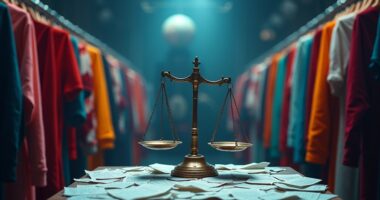Creating a green supply chain is like crafting a gourmet sandwich of sustainability, layered with tasty, eco-conscious bites. Start by sourcing materials from certified green suppliers—think of it as a treasure hunt for eco-friendliness. Then, mix in lean manufacturing techniques that minimize waste and maximize efficiency. Don’t forget green logistics; optimizing routes can save fuel. Finally, add transparency and ethical practices for a well-rounded finish. There’s more to this recipe of sustainability just waiting to be explored!
Building a Sustainable Supply Chain
In a world where consumers are increasingly demanding eco-friendly practices, creating a green supply chain is more than just a nice-to-have; it’s becoming a business imperative.
Companies are no longer just seen as vendors; they are viewed as responsible stewards of the environment.
Sustainable sourcing is the first step, as businesses must procure raw materials from certified green or ethical sources.
Sustainable sourcing kicks off the journey, ensuring raw materials come from eco-friendly and ethical origins.
Imagine a treasure hunt, but instead of gold, they’re seeking eco-friendly suppliers who abide by strict environmental and social standards.
Once suppliers are on board, the real fun begins with green manufacturing.
Lean production techniques help minimize waste, while renewable energy sources power the machinery—think of it as turning sunlight into productivity. Green Supply Chain Management encompasses the entire lifecycle of products, ensuring sustainability is integrated at every stage.
Eco-friendly materials and sustainable packaging become the norm, making it easier for companies to shine in a sea of competitors.
Next on the agenda is green logistics and transportation, where optimization of transport routes reduces fuel consumption.
Picture a well-orchestrated symphony, where every delivery vehicle plays its part in harmony, using energy-efficient or alternative fuel methods.
Green warehousing practices, like solar panels and LED lighting, help keep emissions in check, making logistics a less carbon-heavy affair. Efficient resource utilisation is crucial for maximising value while minimising waste throughout the supply chain.
But wait, there’s more!
A circular supply chain guarantees products are designed for easy disassembly and recycling.
It’s like a game of Tetris, where every piece has a place, and nothing goes to waste.
With return and recycling programs in place, businesses can embrace a closed-loop system, minimizing the demand for new raw materials.
Finally, transparency and ethical practices tie everything together.
Regular audits guarantee the supply chain remains on the right path, while digital tools provide real-time visibility.
It’s a bit like having a GPS for sustainability—always knowing where you stand.
Building climate resilience into your supply chain helps ensure continuity even when environmental disruptions threaten operations.
In the grand scheme of things, a green supply chain is not just good for the planet; it’s a smart business move, paving the way for a brighter, greener future.









